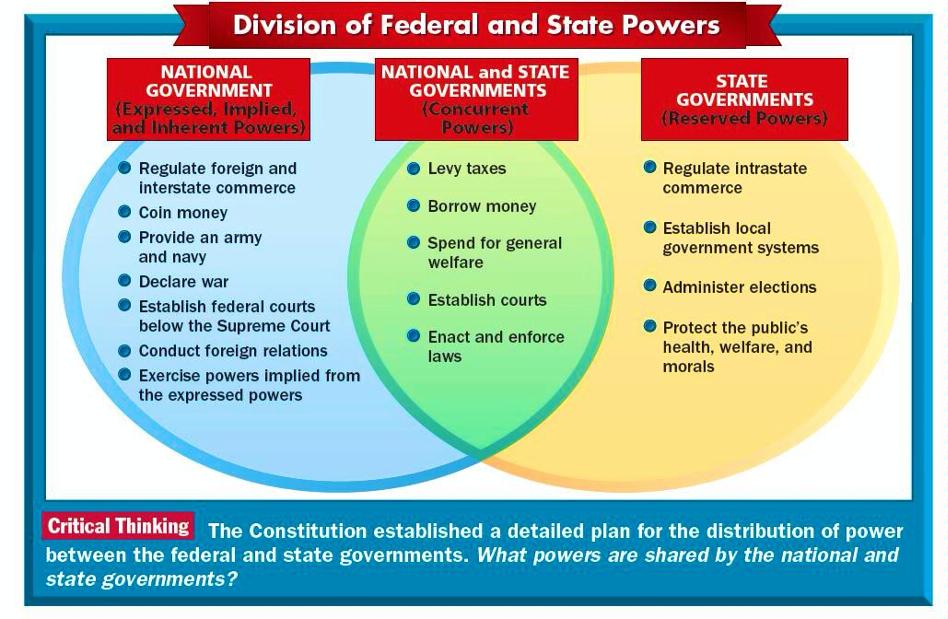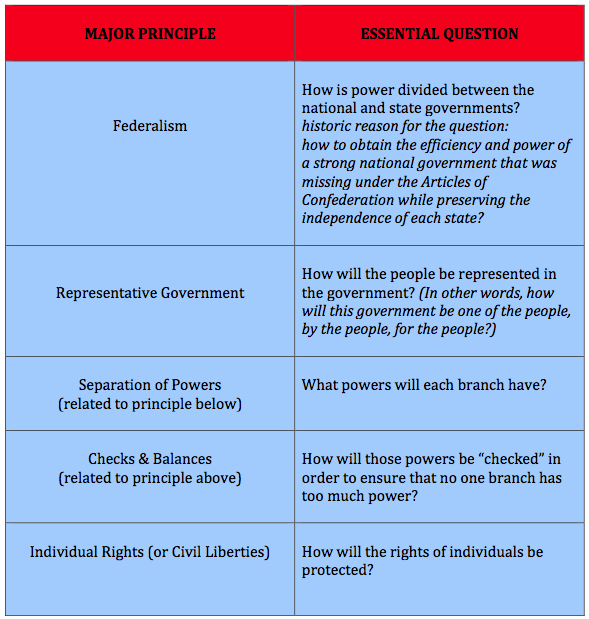
The Framers of the Constitution understood that they needed to give the new federal government sufficient power to resolve the conflicts among the states and keep the union together at a time when it was falling apart (the phrase in the preamble “to form a more perfect union” was not a hollow boast but a worried hope), but given their recent experience as colonies they feared creating a government with enough power to tyrannize the public. Comparative federalism, confederalism, unitary systems In: Ishiyama, John T., and Marijke BreuningComparative federalism, confederalism, unitary systems 21st century political science: A reference handbook Thousand Oaks, CA: SAGE Publications, Inc. Thousand Oaks: SAGE Publications, Inc., 2011, pp. "Comparative Federalism, Confederalism, Unitary Systems." 21st Century Political Science: A Reference Handbook. 21st Century Political Science: A Reference Handbook, Thousand Oaks, CA: SAGE Publications, Inc. Comparative Federalism, Confederalism, Unitary Systems. Thousand Oaks, CA: SAGE Publications, Inc., 2011.

"Comparative Federalism, Confederalism, Unitary Systems." In 21st Century Political Science: A Reference Handbook, 168-76. Breuning 21st century political science: A reference handbook (pp. Comparative federalism, confederalism, unitary systems. This two-volume resource makes fairly complex approaches in political science accessible to advanced undergraduate and beginning graduate students.ĭowns, W. A section on identity politics includes chapters on topics such as Race, Ethnicity, and Politics Gender and Politics Religion and Politics and LGBT Issues/ Queer Theory. The two volumes are divided into six major parts: 1) General Approaches of Political Science 2) Comparative Politics 3) International Relations 4) Political Science Methodology 5) Political Thought and 6) American Politics.

21st Century Political Science: A Reference Handbook serves as an authoritative reference source that meets students' research needs with more detailed information than encyclopedia entries but not so much jargon, detail, or density as a journal article or a research handbook chapter. An editorial advisory board comprised of eminent scholars from various subfields, many of whom are also award-winning teachers, selected the most important general topics in the discipline.


Via 99 entries or "mini-chapters," the SAGE 21st Century Reference Series volumes on political science highlight the most important topics, issues, questions, and debates any student obtaining a degree in this field ought to have mastered for effectiveness in the 21st century.


 0 kommentar(er)
0 kommentar(er)
